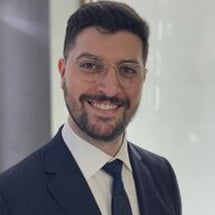"What do you do for fun?"
When I prep applicants for their medical school interviews, I can't help but grin to myself as I ask this question because of the nearly inevitably deer-in-the-headlight look that follows. Applicants are often woefully unprepared to talk about the things that they do just for enjoyment. And I get it: when I applied to medical school, I focused so much on communicating professionalism and an aptitude for academic achievement. But this question has become my favorite, because it's an opportunity to demonstrate elements critical to any medical student or professional. What follows are a few things to think about when preparing for this question, and some advice for how to put it all together.
Start by considering...
1. What do you value?
What is the point of a medical school interview? Arguably, the point is to get to know you! Some of that, of course, is learning more about what you've done. But it is just as important to the admissions committee to learn more about what you value. Talking about what you do on your own time for no purpose other than because it makes you happy can shed a lot of light on what you care about. For example:
- Do you love to cook? Maybe you like working with your hands.
- Do you look forward to the Sunday crossword puzzle? Maybe you love to be challenged and thirst for the thrill of solving a problem.
- Do you love watching sports with your friends on the weekends? Then maybe maintaining a supportive group of friends is a critical part of the way you care for yourself.
If you spend a significant amount of time doing something, then it is an expression of your values. It is up to you to make that connection and communicate it in your interview.
2. Self-care
You’ve certainly heard this before, but it bears repeating: medical education is a marathon. It is simply not possible to make it through without having some coping skills. Communicating to the admissions committee that you understand how to balance your work and your mental health demonstrates maturity. Part of work life balance is (you guessed it) doing things for fun! That run you take every evening to keep you from losing your marbles should be framed as an act of self care in your interview.
3. Be shiny!
Talking about what you do for fun is also an opportunity to talk about some fancy tidbits of information that maybe didn’t make it into your primary app.
- To the same person who loves to do the Sunday crossword, were you also a contender in the national spelling bee?
- If you love tossing a football at the park, did you also play in a state championship in high school?
I am definitely NOT saying that the things you do for fun have to be areas of high achievement. But if you do have some shiny, sparkly achievements that didn’t really have a space in your work and activities, this question is versatile enough to incorporate those elements and help you be more memorable in your interview.
Put it all together
1. Make a list
Write down everything you do for fun, with a rough estimate of how much time you spend doing this thing over a given period of time. Nothing is too big or too small! Just get it all out onto the page and look at it. Then, narrow that list down to 3-5 activities. For each of those activities, consider the amount of time spent on it, its importance to you, and whether that thing is connected to something particularly impressive you want to share (see: be shiny!).
2. Reflect
Think seriously about why these things are important to you. Why do you keep coming back? What itch is this activity scratching? Determine what you value in participating in these activities. Next, describe these activities using words relevant to medicine (leadership, problem solving, teamwork, service, etc.).
3. Plan
Outline an answer to this question by choosing one or two activities to talk about, describing them using active words relevant to medicine. Consider mentioning how these activities relate to self-care and stress management and sprinkling in any impressive tidbits. See if you can turn it into an opportunity to learn more about the program!
Example:
“What do I do for fun? I love to play soccer with my friends at the park on the weekends. I love to be outside, connect with my friends, and play as a team. My mom taught me how to play when I was really young, and I even played in the state championship in high school! These days it’s just a really fun way to get some exercise and blow off some steam. To be honest, playing soccer and getting outside is a big part of maintaining my work-life balance. Does this school have an intramural league? If not, would it be possible to start one if I am admitted?”


Comments